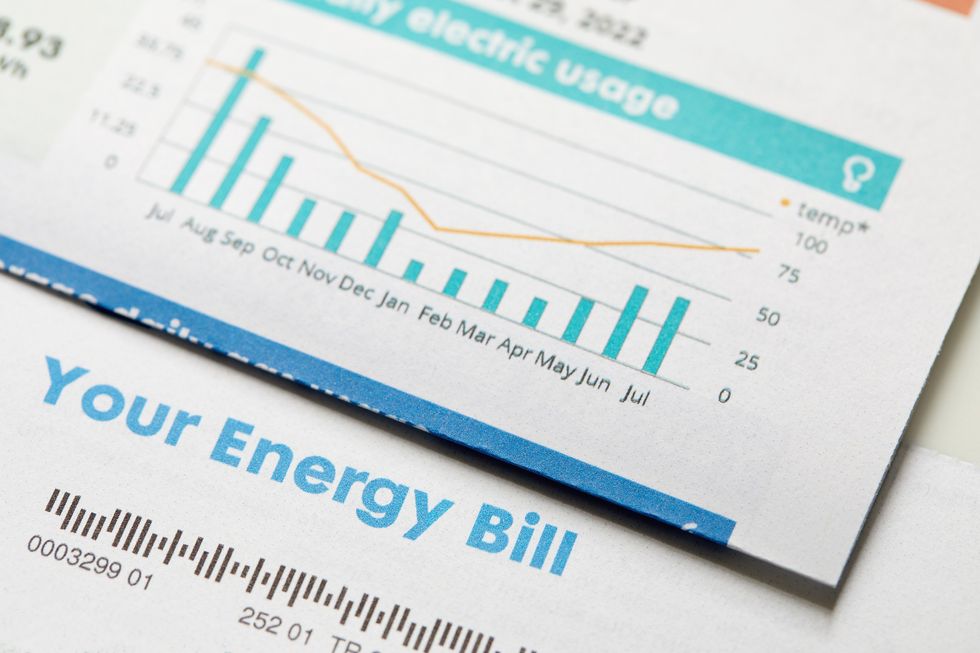Energy bills are set to rise again in April 2025 in another blow to millions of Britons, with Cornwall Insights forecasting the price cap will reach £1,785 for a typical dual fuel household. The predicted increase represents nearly a three per cent rise from January's cap of £1,738.
The latest forecast comes as households are already grappling with the January price cap increase of 1.2 per cent. Ofgem is also likely to extend the Supplier Bad Debt Allowance beyond March, which currently adds approximately £30 per year to bills.
The allowance was initially introduced to provide additional support credit for some prepayment meter customers. Average energy bills currently remain around £700 a year higher than they were in winter 2020/21.
Market volatility has played a significant role in the projected price increase, according to Cornwall Insights. Early December saw a temporary decline in wholesale energy prices due to easing supply tensions in Europe.
However, prices rebounded in the latter half of December amid growing geopolitical instability. The surge was particularly notable last week, driven by new uncertainty surrounding the Ukraine transit deal. Higher withdrawals from EU gas storage facilities have also contributed to market pressures.
Do you have a money story you’d like to share? Get in touch by emailing money@gbnews.uk.

Adding to the uncertainty is speculation about US LNG export plans under a potential second Trump presidency. These factors have led Cornwall Insights to warn that price cap forecasts may continue to show significant variability.
Dr Craig Lowrey, the principal consultant at Cornwall Insights, said: "The news of a rise in our forecast will be disappointing to households who will no doubt have been hoping for relief from recent cap rises."
"However, the turbulence in wholesale markets - a level of volatility we haven't seen for months reminds us to remain cautious of predictions, which could very well increase or decrease several times before the April cap is set," he added.Dr Lowrey warned that market volatility is likely to persist.
"With a Trump presidency on the horizon, and an uncertain geopolitical situation in the Ukraine and the Middle East, wholesale market volatility looks set to remain," he said. New research from the Warm This Winter campaign reveals widespread public concern over energy costs.

Nearly three-quarters (74 per cent) of the public are worried about global energy price insecurity over the next five years. The survey found that 79 per cent of people fear potential further energy price rises during the same period.
Two-thirds (67 per cent) of respondents expressed concern about the UK's reliance on oil and gas. Half of those surveyed (53 per cent) worry the country may not build renewables quickly enough over the next five years.
These findings come as energy debt levels have reached record highs. Meanwhile, 20 energy firms have recorded profits exceeding £483billion in recent years. Research shows that around a quarter of heating energy is wasted due to poor insulation in the UK's housing stock.
Caroline Simpson, spokesperson for Warm This Winter, highlighted the urgent need for long-term solutions. "As the latest price cap rise means energy bills will be 67 per cent above what they were in winter 2020/21 we need long term solutions," she said.

"We urge the Government to get on with the job they have started on that road to permanently lowering bills for all," Simpson added. Simon Francis, coordinator of the End Fuel Poverty Coalition, highlighted the severe impact of the energy bills crisis.
"Millions of people are living in cold damp homes, unable to heat their homes to a safe temperature or racking up massive debts - with some even turning to loan sharks," he said. Francis emphasised that 2025 will be crucial for energy policy reforms.
These include changes to Ofgem, standing charges, electricity markets and the Clean Power Plan rollout. However, he stressed the need for immediate action to help struggling households.
"The UK government needs to ensure that those suffering now are not abandoned. This means more support for households through a social tariff and delivering on its promise to help people to insulate their homes," he said.

 By GB News (World News) | Created at 2025-01-01 00:02:54 | Updated at 2025-01-03 21:27:43
2 days ago
By GB News (World News) | Created at 2025-01-01 00:02:54 | Updated at 2025-01-03 21:27:43
2 days ago








